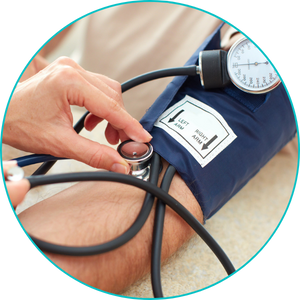What is Blood Pressure?

What is Blood Pressure?
Blood pressure, also known as blood pressure, is the pressure that blood exerts on the vessel walls. This pressure is created by the pumping of blood through arteries and other blood vessels as the heart beats. Blood pressure is usually expressed as two numbers: systolic (upper) and diastolic (lower). Systolic blood pressure represents the point at which blood pressure is highest during heartbeats, while diastolic blood pressure represents the point at which blood pressure is lowest at rest between heartbeats.
Normal Blood Pressure Range
According to medical standards, normal blood pressure is generally considered 120/80 mmHg. A person is considered within the normal blood pressure range when their systolic blood pressure is below 120 mmHg and their diastolic blood pressure is below 80 mmHg. However, blood pressure values can vary from person to person and depend on many factors, including age, gender, genetics, lifestyle, and health status.
High Blood Pressure (Hypertension)
High blood pressure, or hypertension, refers to a condition in which blood pressure is higher than normal. A person is considered hypertensive when their systolic blood pressure is above 140 mmHg or their diastolic blood pressure is above 90 mmHg. Hypertension often has no obvious symptoms and is known as the "silent killer." However, long-term hypertension can lead to heart disease, stroke, kidney disease, and other serious health problems.
Low Blood Pressure (Hypotension)
Low blood pressure, or hypotension, refers to a condition in which blood pressure is lower than normal. Symptoms of low blood pressure can include dizziness, headache, weakness, fatigue, feeling faint, and pale skin tone. Hypotension is not usually considered a health problem, but severe cases of low blood pressure may require treatment.
Important Notes and Warnings
It's important to have your blood pressure checked regularly. Blood pressure problems like hypertension or hypotension can increase health risks. You can keep your blood pressure under control by adopting a healthy lifestyle, eating a balanced diet, exercising regularly, not smoking, and limiting alcohol consumption. It's also important to have regular health checkups and blood pressure measurements.
Diğer Makalelere Göz Atın
Sorularınız ve Randevu Talebi İçin Kalp ve Damar Cerrahisi Prof. Dr. Hayati Deniz’den bilgi ve randevu almak için iletişime geçin.



